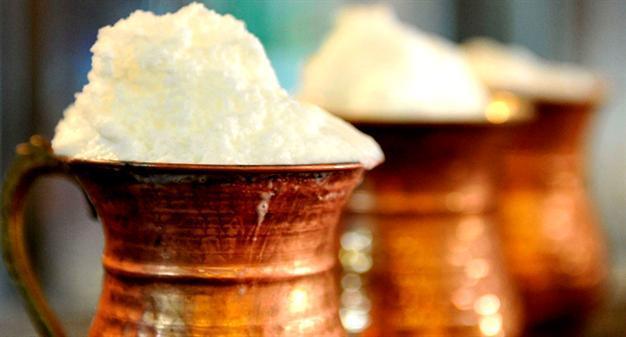Teachers’ trade union applies for alcohol classes to be elective in vocational high schools
ANKARA Gamze Kolcu

President Recep Tayyip Erdoğan has repeatedly suggested that ayran, the salty yoghurt-based drink, should be considered Turkey's national drink instead of alcoholic beverages such as rakı or beer.
An education sector trade union has applied to Turkey’s Education Ministry to make liquor service classes, which are taught in vocational high schools specializing in hotel management and tourism, an elective course.Eğitim-Bir-Sen, a union known for its generally conservative views, lodged a petition to the Education Ministry’s Council on Education and Morality to change the alcoholic beverages service class from mandatory to elective.
The liquor service class is currently mandatory in the “bar” and “service” sections of the 11th and 12th grades of vocational high schools that specialize in hotel management and tourism.
While issuing the petition, Eğitim-Bir-Sen Deputy Chairman Ahmet Özer and Vice Chairman Ramazan Çakırcı complained that the courses introduced underage youths to alcohol.
“In a country where even cigarette sales are forbidden to children under the age of 18, [the classes] introduce liquor to children and oblige them to drink what they have prepared. This fits neither the laws nor the regulations. We demand that the class is only taught upon request,” said Özer.
Eğitim-Bir-Sen had previously collected 12.3 million signatures for a petition calling for the lifting of the headscarf ban on public workers, a campaign that resulted in a government decree changing the regulation on the dress code in public schools. The amendment allows girls as young as 10 years old to attend classes wearing headscarves, though also bans students from wearing make-up or having tattoos and piercings.
Eğitim-Bir-Sen has also previously demanded the abolition of mixed-sex education, and expressed its discomfort with the compulsory wearing of ties for male public officials.
Presenting the latest petition, Özer stated that there were many alcohol-free hotels in Turkey, where students who choose not to attend the liquor service class can work.
Known as “halal hotels,” these hotels offer their visitors halal food and non-alcoholic drinks along with separate swimming pools and beaches for women and men. There are around 30 halal hotels in Turkey, according to 2013 figures, and can particularly be found in Turkey’s southern, Aegean, northwestern and Black Sea regions.
“We cannot ban alcohol as we are a tourism based country, but we can [make alcohol service classes elective]. As a second option, we could offer students who want to attend the classes special courses at public education centers after their graduation,” Özer also said.
However, Kamuran Karaca, the chairman of another teachers’ trade union, Eğitim-Sen, has objected to the petition demand sent to the ministry, describing it as “old-fashioned.”
“We as Eğitim-Sen do not say that alcohol should be consumed, but we also do not understand regulating social life according to religious values … [Such a debate] in this century does not coincide with the discourse of democracy and freedom,” said Karaca.
















